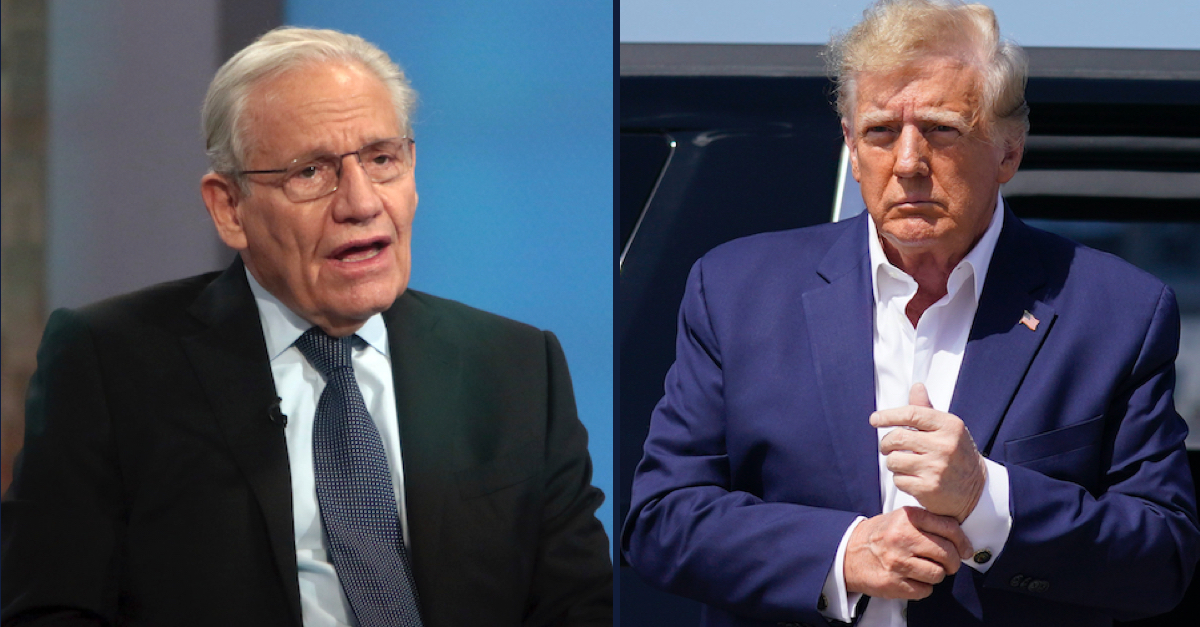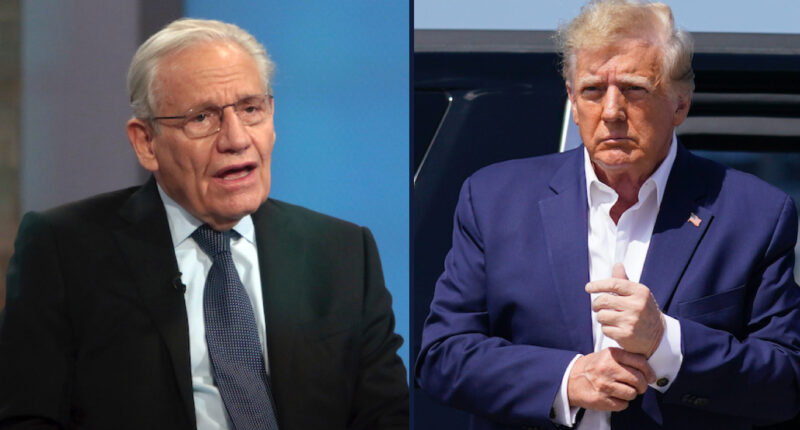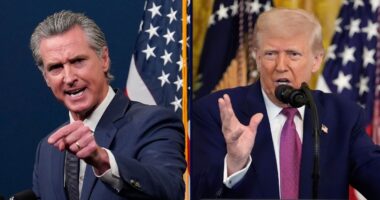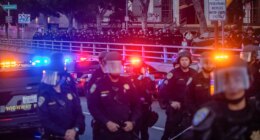
Bob Woodward, the author of the book “Peril,” was recently spotted promoting his third book about Donald Trump on the TV show Good Morning America in New York City on September 20, 2021. On the other hand, former President Donald Trump was seen boarding an airplane for a campaign rally in Waco, Texas on March 25, 2023.
A federal judge in New York on Tuesday rejected a request from Donald Trump to proceed with discovery in his copyright lawsuit against journalist Bob Woodward as the president-elect continues to make good on his promise to pursue litigation against members of the press.
U.S. District Judge Paul G. Gardephe, an appointee of George W. Bush, almost immediately denied Trump’s request to expedite the process with a handwritten order jotted atop the letter Trump’s attorney submitted to the court.
“The Court is at work on the outstanding motion,” Gardephe wrote. “To the extent Plaintiff seeks to embark on discovery before the motion to dismiss is resolved, that application is denied.”
As Law&Crime previously reported, Trump last year sued Woodward over the release of “The Trump Tapes: The Historical Record,” an October 2022 audiobook based on 19 interviews that had formed the basis of Woodward’s 2020 bestseller, “Rage.”
In a lawsuit filed in January, Trump alleged that Woodward had promised to use the tapes only for the book and that by using the tapes of the interviews, Woodward and publisher Simon & Schuster had “systematically, blatantly, and unlawfully usurped President Trump’s copyright interests, his contractual rights, and the rights he holds as an interviewee, through the publication of an audiobook […] predicated upon the subject audio — solely for their own financial gain and without any accounting or recompense to him.”
Trump’s complaint demanded $49.98 million “exclusive of punitive damages.”
While there had not been significant activity in the case for several months, Trump began to press the issue shortly after his November victory in the presidential election, a victory that is referenced several times in the letter to Gardephe.
“President Trump is keen to advance this case, vindicate his rights and ensure that future violations do not occur during his upcoming presidential term,” the letter from Trump’s attorney Robert Garson states. “As this Court knows, the Copyright Office granted a copyright registration to President Trump in the Work, […] yet Defendants continue to profit from President Trump’s narration, undoubtedly buoyed by his resounding victory and resurgence in this year’s elections.”
Garson goes on to emphasize Trump’s recent eight-figure settlement in a defamation lawsuit against ABC and George Stephanopoulos, saying it represented “a renewed accountability among those who violated [Trump’s] rights over the last four years.”
Many legal experts have derided ABC’s decision to settle the suit as a form of anticipatory obedience that will only embolden Trump’s campaign against the Fourth Estate when he retakes office next month.
“Indeed, in Trump v. American Broadcasting Companies, Inc. where ABC was represented by the same counsel that represents the Defendants in this case, the defendants recognized the error of their ways and have shown their level of regret in words and deed,” the letter states. “President Trump is hopeful that the Defendants in this case follow Mr. Stephanopoulos’ expression of contrition.”
Garson concluded the letter by suggesting that further delays in the case would cause “significant harm to not only the President-elect,” but also to “the American people.”
Trump on Monday also filed a lawsuit against Iowa pollster J. Ann Selzer and The Des Moines Register, alleging the newspaper’s reporting on the 2024 election that showed Kamala Harris ahead in polling amounted to election interference. The suit has similarly been criticized by experts as an effort to curtail reporting that is critical of Trump through costly litigation.
Woodward last year submitted a sworn statement in which he emphatically denied Trump’s claims that his contractual rights and copyright interests were usurped by Woodward’s use of the interview tapes.
In a subsequent memorandum supporting Woodward’s motion to dismiss, the journalist’s attorney Elizabeth A. McNamara referred to Trump’s stance on intellectual property rights as unprecedented in the history of the Oval Office.
“No President before Donald Trump has ever claimed to own a copyright in presidential interviews or demanded royalties for their republication,” she wrote in the 44-page memo.







